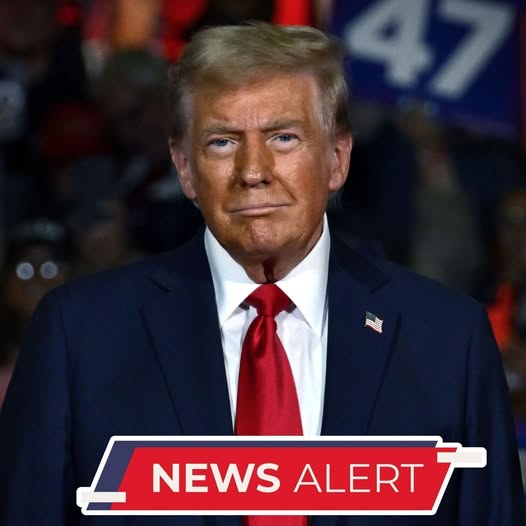
Former President Donald Trump’s executive order, aimed at curbing anti-Semitism, marks a drastic shift in U.S. policy, particularly affecting foreign students and individuals involved in pro-Palestinian protests. This directive has significant implications, allowing for the deportation of foreign nationals who participate in such protests, especially those advocating for pro-Hamas sentiments.
The Justice Department has outlined its immediate plan of action in response to the order, signaling increased enforcement of measures against individuals deemed to pose a threat to American Jewish communities. This includes targeting acts of terrorism, arson, vandalism, and violence linked to anti-Semitic activities.
The order gained further attention after the October 7, 2023, Hamas attack on Israel, which influenced the Trump administration’s stance. Foreign residents who take part in what the administration labels “pro-jihadist” protests could face deportation starting in 2025. Additionally, foreign students expressing pro-Hamas views on university campuses will have their visas revoked. This aggressive policy seeks to deter support for groups the U.S. government considers terrorist organizations, with a clear focus on national security and the protection of American Jewish communities.
The Situation on U.S. Campuses
Following the surge of “Free Palestine” protests across the United States, tensions have escalated on college campuses, particularly in the wake of the ongoing Middle East conflict. These protests have led to a significant rise in incidents of anti-Semitic, anti-Arab, and Islamophobic actions. The conflict between Arab communities and Israel has been a driving force behind these developments, further fueling division and unrest.
In response, the Trump administration’s executive order mandates that agency and department heads provide recommendations within 60 days to the White House on both criminal and civil measures aimed at combating anti-Semitism. The order also stipulates the deportation of foreign residents who violate U.S. laws, reinforcing the government’s stance on maintaining public safety and security.
Controversy and Criticism from Human Rights Organizations
Human rights groups have expressed strong opposition to the executive order, citing concerns over its potential impact on free speech and the rights of protesters. Evidence presented by these organizations highlights that the protests, which have been described as pro-Hamas, involved acts of vandalism, intimidation, and efforts to block access to Jewish students, as well as targeting synagogues. Critics argue that the policy unfairly targets certain groups and may lead to disproportionate consequences for individuals participating in peaceful demonstrations.
Many protesters have rejected any connection to Hamas, clarifying that their demonstrations were aimed solely at opposing Israeli military actions in Gaza, which have resulted in over 45,000 fatalities. They argue that their actions were in response to the humanitarian crisis, not in support of any terrorist group.
However, the Trump administration’s executive order has faced sharp criticism from organizations such as the Council on American-Islamic Relations (CAIR). They argue that the order not only stifles free speech but also unfairly targets Palestinian advocates, undermining their humanity while claiming to combat anti-Semitism. Critics argue that the policy is overly broad, excessive, and impractical, with the potential to infringe on civil liberties and disproportionately affect certain groups.
Political Promises and Immigration Policies
Since his 2024 campaign, Trump has consistently taken a strong stance against pro-Hamas supporters. Upon taking office, he reinstated travel bans affecting primarily Muslim-majority or Arab-majority countries, reinforcing his administration’s tough immigration policies. These moves have sparked debates about whether they disproportionately affect specific communities, often reigniting discussions about the balance between national security and civil liberties.
Trump’s executive order targeting protest participants is part of a broader agenda addressing what he describes as radicalism on U.S. college campuses. This policy specifically targets students linked to pro-Hamas activities, reflecting his broader goals of law enforcement and immigration control.
What are your thoughts on this evolving issue? We invite you to join the conversation!